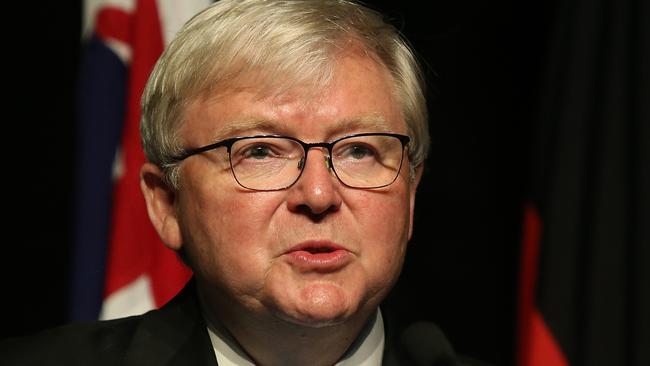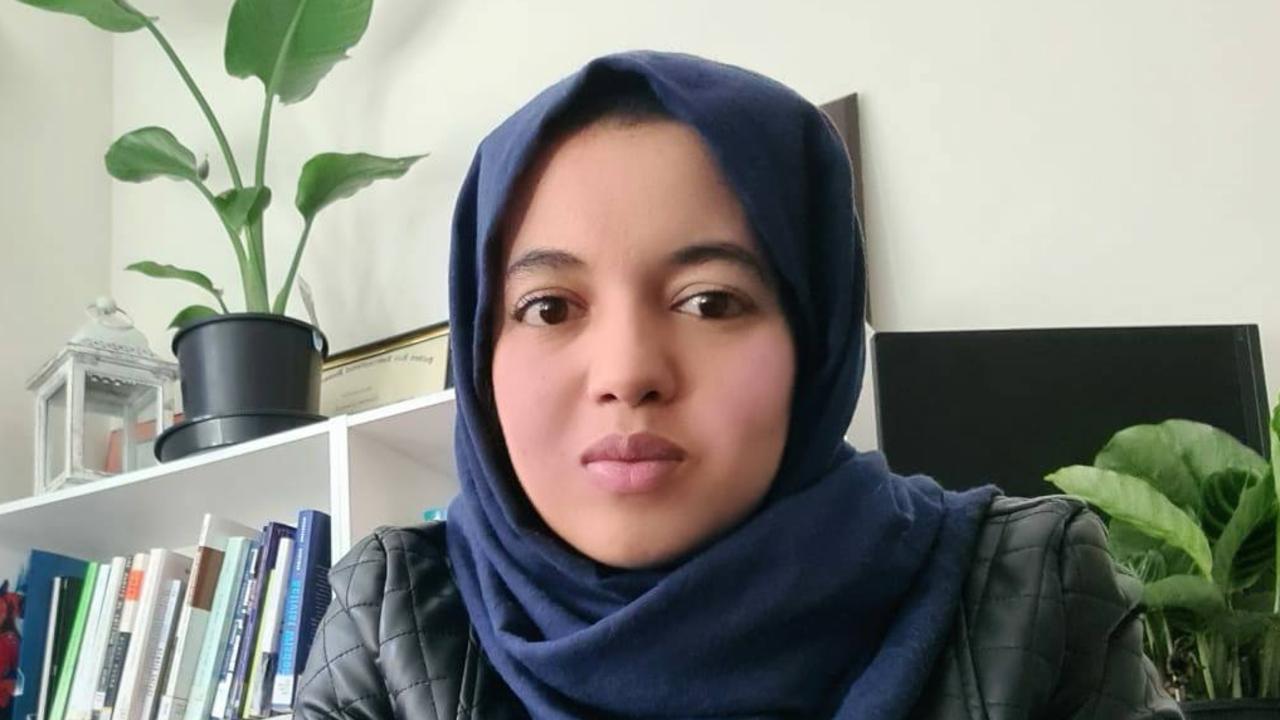ANU’s Chinese studies centre in disarray: review
China studies at the ANU is in ‘disarray’ and faces a major overhaul after a damning external review.

China studies at the Australian National University are in disarray and face an overhaul after a damning external review revealed Kevin Rudd’s $53 million China in the World centre was close to collapse, facing a $9m deficit.
The review — written by a senior DFAT official along with professors from Harvard, Oxford and the National University of Singapore and obtained by The Australian — warns of a “dire” situation amid concerns about the Chinese government’s increased influence in Australia.
“China is increasingly seeking to influence policy and debate in key sectors of the Australian economy and society, including Chinese communities in Australia,” the review panel said. “No major research university can afford to neglect the rise of China … yet at present ANU is not prepared to rise to these challenges.”
In 2010, Mr Rudd, then prime minister, handed his alma mater $35m as a foundation grant and $18m for a new building to establish the Australian China in the World centre. Following the review, completed in November, the university pledged to make major changes to China studies and strip the centre’s stand-alone status.
“China in the World is faltering and cannot be said to be meeting expectations … the collapse of the China in the World centre cannot be ruled out,” the review panel said. “What we propose is the reformation of the CIW as a ‘hub’ around which research and teaching in China studies taking place across the university revolves.”
The review outlines serious financial problems at the centre, after it was unable to attract adequate independent revenue and drew down too heavily on its endowment. “(The centre has a) flawed funding and budgeting model, resulting in chronic deficit spending,” it said.
The panel recommended the university attempt to renegotiate its grant agreement with the federal government, forgive its $9m overdraft and slash its yearly operating costs by half.
The university declined to comment further on the centre’s financial difficulties.
As of August, the university had only one professor whose main research area was in China studies, leaving research capacity “severely diminished”, according to the review. The professor was soon to become part-time. “Staff numbers are depleted and most senior faculty members have left, and morale is low,” it said.
In a statement released by the university, ANU College of Asia and the Pacific dean Michael Wesley said the changes would “strengthen the capacity, independence and scope of China studies at ANU”.
The centre will stay in its bespoke building and a new director will be appointed but otherwise there will be no permanent faculty staff. The university will hire senior academics focused on Chinese elite politics, modern Chinese history, culture studies and contemporary Chinese society who will work with the centre.
Summary of recommendations: Mobile readers click here
ANU China Studies review - Full Report: Mobile readers click here
Top DFAT official Graham Fletcher, the North Asia first assistant secretary, sat on the review panel alongside Harvard University professor Mark Elliot, Oxford University professor Rana Mitter, UNSW professor Louise Edwards, Griffith University professor Sue Trevaskes and National University of Singapore professor Wang Gungwu.
Academics are split about the changes. Swinburne University China expert John Fitzgerald said the concept of the centre was flawed from the start and the proposed new investment in China studies was “absolutely essential”.
“The CIW centre was created via a prime ministerial captain’s call, and not subject to competitive tender, so it was not necessarily set up in the best way possible,” Professor Fitzgerald said.
“Its management was not transparent and its work was not well integrated with the China expertise and offerings already available on campus.”
Another China academic, who did not wish to be named, said taking away the centre’s stand-alone status was a mistake and questioned why there was not a focus on China-Australia relations.
“I think that the proposed changes spell the end of any possibility of ANU having a major influence on China studies even in Australia,” the academic said. “They seem happy to leave [Bob Carr’s] ACRI at UTS as the sole centre of such studies.”
The Australian has previously reported on concerns about the lack of China expertise inside the Australian government.
In November, a report to Treasury warned that officials advising on China’s economic policy lacked an understanding of how Chinese leaders and policymakers operated. Mercator Institute of China Studies, an influential European think tank, has warned that European governments lack high-calibre independent China expertise.


